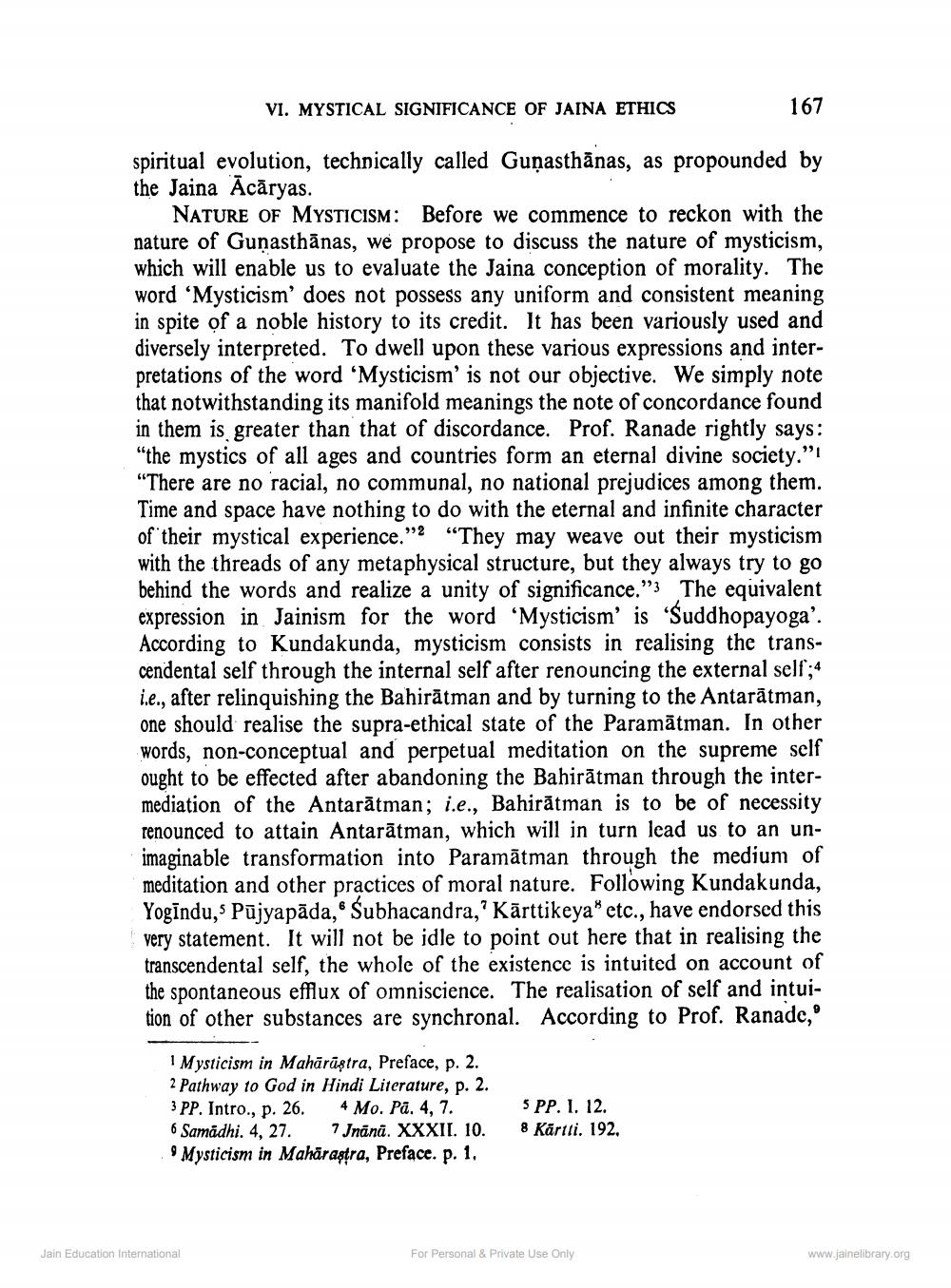________________
VI. MYSTICAL SIGNIFICANCE OF JAINA ETHICS
167
spiritual evolution, technically called Guņasthānas, as propounded by the Jaina Acāryas.
NATURE OF MYSTICISM: Before we commence to reckon with the nature of Gunasthānas, we propose to discuss the nature of mysticism, which will enable us to evaluate the Jaina conception of morality. The word 'Mysticism' does not possess any uniform and consistent meaning in spite of a noble history to its credit. It has been variously used and diversely interpreted. To dwell upon these various expressions and interpretations of the word 'Mysticism' is not our objective. We simply note that notwithstanding its manifold meanings the note of concordance found in them is greater than that of discordance. Prof. Ranade rightly says: "the mystics of all ages and countries form an eternal divine society." "There are no racial, no communal, no national prejudices among them. Time and space have nothing to do with the eternal and infinite character of their mystical experience." "They may weave out their mysticism with the threads of any metaphysical structure, but they always try to go behind the words and realize a unity of significance." The equivalent expression in Jainism for the word 'Mysticism' is 'Suddhopayoga'. According to Kundakunda, mysticism consists in realising the transcendental self through the internal self after renouncing the external self;4 i.e., after relinquishing the Bahirātman and by turning to the Antarātman, one should realise the supra-ethical state of the Paramātman. In other words, non-conceptual and perpetual meditation on the supreme self ought to be effected after abandoning the Bahirātman through the intermediation of the Antarātman; i.e., Bahirātman is to be of necessity renounced to attain Antarātman, which will in turn lead us to an unimaginable transformation into Paramātman through the medium of meditation and other practices of moral nature. Following Kundakunda, Yogīndu, s Pūjyapāda, Subhacandra," Kārttikeya etc., have endorsed this very statement. It will not be idle to point out here that in realising the transcendental self, the whole of the existence is intuited on account of the spontaneous efflux of omniscience. The realisation of self and intuition of other substances are synchronal. According to Prof. Ranade,
1 Mysticism in Mahārāştra, Preface, p. 2. 2 Pathway to God in Hindi Literature, p. 2. 3 PP. Intro., p. 26. 4 Mo. Pa. 4, 7.
Samadhi. 4, 27. Jnānā. XXXII. 10. Mysticism in Mahārastra, Preface. p. 1.
5 PP. I. 12. 8 Kärtti. 192.
Jain Education International
For Personal & Private Use Only
www.jainelibrary.org




